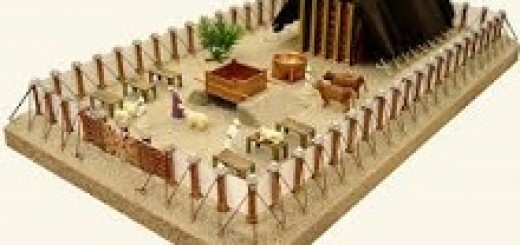By Shalom Olensky
This week in the Torah:
Creation – the opening to the Five Books of Moses.
Question:
Why is Creation chosen to open the Torah – a book of laws and religious instructions?
Furthermore:
Why is Creation even mentioned at all in the Torah when the tale of Creation could have been handed down through Oral Tradition?
Rashi answers:
This is to teach the Jews that the Land of Israel is rightfully theirs, for G-d created the Land and therefore He can, and did, choose the Jews to possess the Land of Israel.
Question:
Could not this concept, as well, have been passed down through Oral Tradition? And, how does acknowledging the Jews’ ownership of the Land of Israel pertain to their Divine service?
Allegory:
The Jewish conquest of the Land of Israel from the possession of the other nations is also allegorical. It teaches that a Jew must refine the worldly and mundane, by using it for a G-dly purpose. Therefore the subject of Jewish ownership of The Land is mentioned in the Torah; and at the beginning of the Torah, because although Torah study and fulfilling Mitzvos are loftier, refining the mundane is more precious to G-d.
Question:
Rashi also says that this subject is necessarily discussed at the beginning of the Torah to defend the Jews’ rights to The Land. Why could this not be accomplished by recounting Creation at another place in the Torah? The above explanation is only that Creation opens the Torah, because refining the worldly and mundane is very important. But why is it necessary to defend this principle?
Explanation:
There are two types of the mundane to refine; one, permissible things and the other, forbidden things. Refining permissible things is common and within the bounds of Torah-true life. Refining prohibited things is more infrequent and only happens by first transgressing and then feeling such remorse that the forbidden past propels him to come so much closer to G-d, transforming the demerit into a merit. This is something only possible by virtue of the SpArk of G‑dliness in the Jew that is connected to G-d Almighty’s Essence, which overrides the bounds and limits of the Torah, thereby transforming a sinner into a righteous penitent.
Answer:
Since this latter form of refining the mundane, leaps and transcends beyond the “boundaries” of Torah Wisdom, a challenge to its validity might justifiably be made. Therefore, Torah itself opens with its first and therefore most prominent subject – Creation and refining the mundane, to lend credence, despite the challenge, and to empower a Jew to refine any and all levels of the mundane.
(Based on Likkutei Sichos Vol. 20, Bereishis)






















